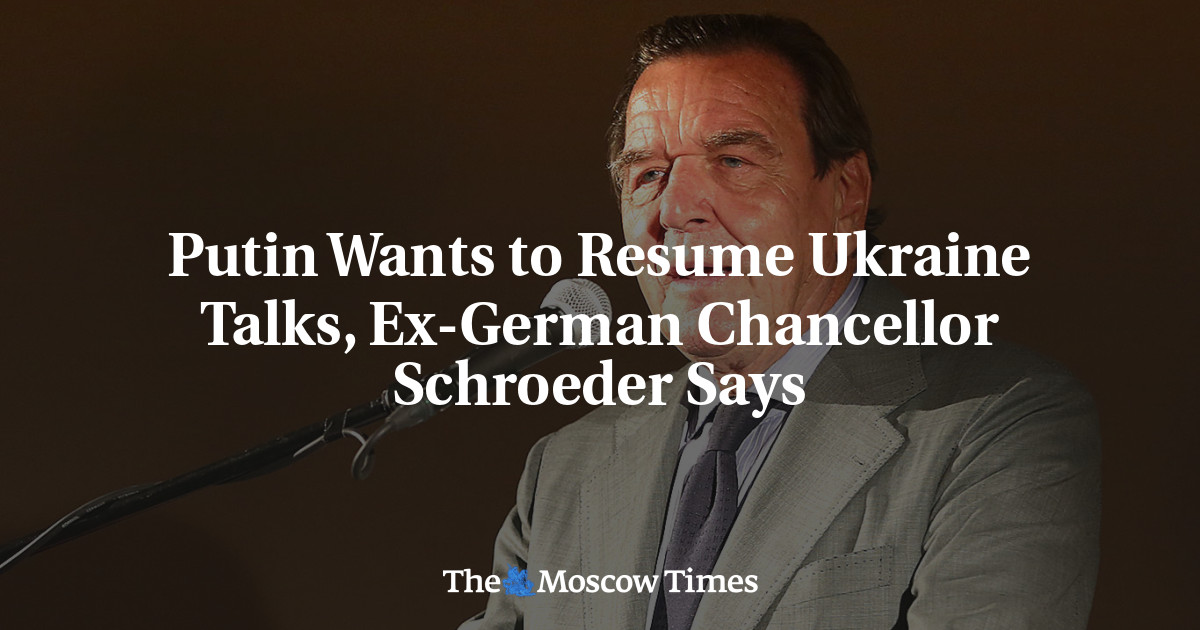
Russian President Vladimir Putin wants to resume peace talks with Ukraine, former German Chancellor Gerhard Schroeder said in an interview published Wednesday after visiting Moscow to meet his longtime friend last week.
Schroeder, 78, described Moscow’s invasion of Ukraine as a “mistake by the Russian government” but said “concessions on both sides” are needed to resolve the conflict that has claimed thousands of lives and displaced millions of Ukrainians.
“The good news is that the Kremlin wants a negotiated solution,” Schroeder told Germany’s n-tv broadcaster.
But he warned against the “denigration of possible concessions by Ukraine as a Russian ‘dictated peace’ in advance,” which he called a “big mistake.”
He pointed to the scuttled Russian-Ukrainian talks of late March as well as last month’s breakthrough grain export deal — both held under Turkish mediation — saying “maybe you can slowly expand that into a ceasefire.”
The Kremlin said Wednesday it stands ready to seek a diplomatic solution to the Ukraine conflict.
Putin’s spokesman Dmitry Peskov told reporters that Kyiv is “aware of Russia’s conditions.”
Peskov added that Schroeder had not expressed a wish to mediate the conflict during talks with Putin last week.
After Schroeder served as chancellor of Germany in 1997-2005 he took up a controversial post on the board of directors at the Russian state-owned oil giant Rosneft.
Amid increasing pressure over the Ukraine war, Rosneft said in May that Schroeder had decided against extending his position on the supervisory board.
Schroeder is chairman of the shareholders’ committee of the company in charge of building the Nord Stream 2 pipeline between Germany and Russia, a project that the current German government shelved days before Russia invaded Ukraine.
Schroeder was nominated to join the board of state-owned gas giant Gazprom three weeks before the invasion — a post that he also rejected in May.
In the n-tv interview, Schroeder defended his friendship with Putin, who is increasingly isolated on the international stage due to the war.
“Would personal distancing from Vladimir Putin really do anyone any good?” he asked. “I made decisions, and I stand by them, and I made it clear: maybe I can be useful again. So why should I apologize?”